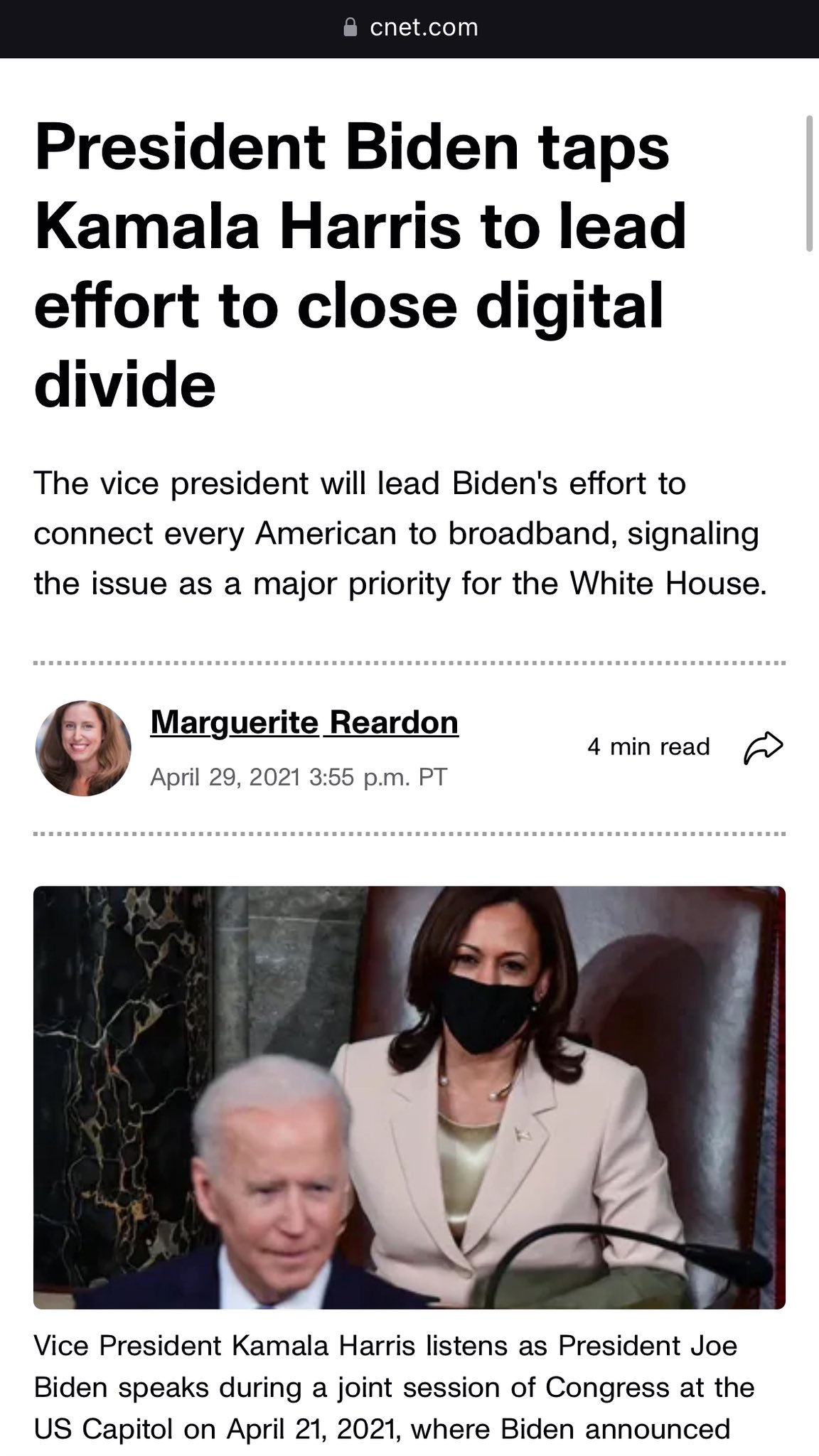So aside from the whole Border Czar thing which apparently doesn’t even exist anymore and we are all idiots for ever having thought it, there’s another thing Kamala was meant to have been doing all this time.
Getting internet to the masses.
In 2021, @VP Harris agreed to lead the Administration’s signature effort to expand Internet infrastructure. Congress then provided $42 billion for the work.
— Brendan Carr (@BrendanCarrFCC) July 29, 2024
It’s now been 9️⃣8️⃣7️⃣ days since the plan was enacted &
0️⃣ Americans have been connected
0️⃣ Shovels worth of dirt turned pic.twitter.com/ojEdSwaCwV
The Biden Administration’s plan to expand internet connectivity for all Americans, particularly focusing on underserved rural and low-income communities, has faced significant – and deserved – criticism.
The administration allocated substantial funding for this project, including $42.45 billion for the Broadband Equity, Access, and Deployment (BEAD) program, $14.2 billion for the Affordable Connectivity Program (ACP), $2 billion for the Tribal Broadband Connectivity Program, and $2 billion for the Department of Agriculture’s Reconnect Program, among others.
These programs were designed to build internet infrastructure, teach digital skills, and provide necessary technology to ensure that everyone in America has access to high-speed internet. (Bear in mind that at the same time we were also sending money overseas to foreign wars, as well as housing, schooling, providing healthcare and phones for millions of illegal immigrants.)
However, as of January 2024, not a single American had been connected to the internet under the plan. This has led to criticism and calls for a more rapid and efficient deployment of the funds and resources allocated to the project.
You had one job…
Vice President Kamala Harris was tasked with overseeing the implementation of the $42.45 billion BEAD program. However, in typical fashion, she failed.
Elon Musk, CEO of SpaceX, has been vocal about the role of his satellite internet service, Starlink, in the Biden administration’s plan. He has suggested that Starlink could play a significant role in providing high-speed internet to rural and underserved areas.
Starlink could do it literally infinitely cheaper https://t.co/QKtP6yfRiR
— Elon Musk (@elonmusk) July 29, 2024
While Starlink’s service is higher than traditional broadband services, with the standard Starlink package costing $120 per month compared to an average of $80 per month for high-speed internet in the US, Musk has emphasized that Starling offers better and more consistent download speeds, particularly in rural areas where traditional broadband services may not be available or reliable. In addition, had he been in charge, it would be done by now.
